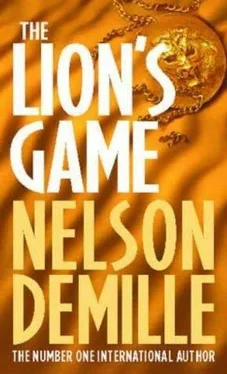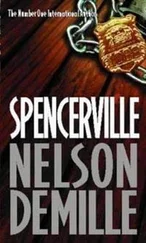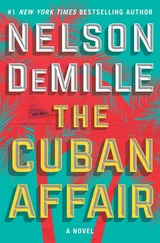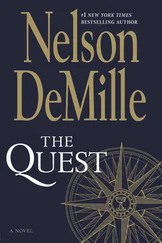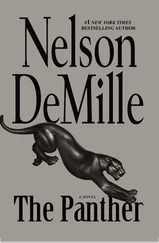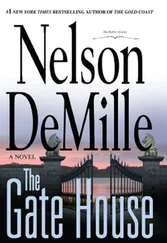Khalil took the newspaper to the bathroom mirror and held it up to the left of his face. He put his bifocals on and peered through the clear tops of the lenses. His eyes shifted back and forth between the photographs and his own face. He made several facial expressions, then stepped back from the mirror, and turned his head slightly to one side so he could see his profile in the wraparound wall mirror.
He put the newspaper down, closed his eyes, and created a mental image of himself and the photographs. The one feature that stood out in his mind was his thin, hooked nose with the flaring nostrils, and he had mentioned this to Boris once.
Boris had told him, "There are many racial characteristics in America. In some urban areas, there are Americans who can tell the difference between a Vietnamese and a Cambodian, for instance, or between a Filipino and a Mexican. But when the person is from the Mediterranean region, then even the most astute observer has difficulty. You could be an Israeli, an Egyptian, a Sicilian, a Greek, a Sardinian, a Maltese, a Spaniard, or perhaps even a Libyan." Boris, who stank of vodka that day, had laughed at his own joke and added, "The Mediterranean Sea connected the ancient world-it did not divide people, as it does today, and there was much fucking going on before the coming of Jesus and Muhammad." Boris laughed again and said, "Peace be unto them."
Khalil clearly recalled that he would have killed Boris right then and there had Malik not been present. Malik had been standing behind Boris, and Malik had shaken his head and at the same time made a cutting motion across his throat.
Boris had not seen this, but he must have known what Malik was doing, because he said, "Oh, yes, I have blasphemed again. May Allah, Muhammad, Jesus, and Abraham forgive me. My only god is vodka. My saints and prophets are deutsche marks, Swiss francs, and dollars. The only temple I enter is the vagina of a woman. My only sacrament is fucking. May God help me."
Whereupon Boris began weeping like a woman and left the room.
On another occasion, Boris had said to Asad, "Stay out of the sun for a month before you go to America. Wash your face and hands with a bleaching soap that you will be given. In America, lighter is better. Also, when your skin darkens from the sun, those scars on your face are more visible."
Boris had asked, "Where did you get those scars?"
Khalil replied truthfully, "A woman."
Boris had laughed and slapped Khalil on the back. "So, my holy friend, you've gotten close enough to a woman for her to scratch your face. Did you fuck her?"
In a rare moment of candor, because Malik was not present, Khalil had replied, "Yes, I did."
"Did she scratch you before or after you fucked her?"
"After."
Boris had collapsed into a chair, laughing so hard he could barely speak, but finally he said, "They don't always scratch your face after you fuck them. Look at my face. Try it again. It may go better next time."
Boris was still laughing when Khalil came up to him and put his lips to Boris' ear and said, "After she scratched me, I strangled her to death with my bare hands."
Boris had stopped laughing and their eyes met. Boris said, "I'm sure you did. I'm sure you did."
Khalil opened his eyes and looked at himself in the bathroom mirror of the Sheraton Motor Inn. The scars that Bahira had inflicted on him were not so visible, and his hooked nose was perhaps not so distinguishing a feature now that he wore eyeglasses and a mustache.
In any case, he had no choice but to go forward, confident that Allah would blind his enemies, and that his enemies would blind themselves by their own stupidity, and by the American inability to focus on anything for more than a few seconds.
Khalil took the newspaper back to the desk and, still standing, he read the front-page story.
His spoken English was good, but his ability to read this difficult language was not so good. The Latin letters confused him, the spelling seemed to have no logic to it, the phonetics of letter groupings, such as "ght" and "ough," provided no clue to their pronunciation, and the language of the journalists seemed totally unrelated to the spoken language.
He struggled through the story, and was able to comprehend that the American government had admitted that a terrorist attack had taken place. Some details were provided, but not, Khalil thought, the most interesting details, nor the most embarrassing facts.
There was an entire page listing the three hundred and seven dead passengers, and a separate listing of the crew. Missing from all these names was a passenger called Yusef Haddad.
The names of the people whom he had personally killed were listed under a caption titled Killed in the Line of Duty.
Khalil noted that his escorts, whom he knew only as Philip and Peter, were surnamed Hundry and Gorman. They were also listed as Killed in the Line of Duty, as were a man and woman identified as Federal Marshals, who Khalil had not known were on board.
Khalil thought a moment about his two escorts. They had been polite to him, even solicitous. They had made certain he was comfortable and had everything he needed. They had apologized for the handcuffs and offered to let him remove his bulletproof vest during the flight, an offer that he declined.
But for all their good manners, Khalil had detected a degree of condescension in Hundry, who had identified himself as an agent of the Federal Bureau of Investigation. Hundry had been not only condescending, but at times contemptuous, and once or twice had revealed a moment of hostility.
The other one, Gorman, had not identified himself beyond his name, which he gave only as Peter. But Khalil had no doubt that this man was an agent of the Central Intelligence Agency. Gorman had shown no hostility, and in fact, seemed to treat Asad Khalil as an equal, perhaps as a fellow intelligence officer.
Hundry and Gorman had taken turns sitting in the seat beside their prisoner, or their defector, as they referred to him. When Peter Gorman sat beside him, Khalil took the opportunity to reveal to Gorman his activities in Europe. Gorman had been at first incredulous, but finally impressed. He had said to Asad Khalil, "You are either a good liar, or an excellent assassin. We'll find out which you are."
To which Khalil had replied, "I am both, and you will never discover what is a lie, and what is the truth."
Gorman said, "Don't bet on it."
Then, the two agents would confer quietly for a few minutes, and then Hundry would sit beside him. Hundry would try to make Khalil tell him what he told Gorman. But Khalil would only talk to him about Islam, his culture, and his country.
Khalil smiled, even now, at this little game that had kept him amused during the flight. Finally, even the two agents found it amusing, and they made a joke of it. But clearly, they realized they were in the presence of a man who should not be treated with condescension.
And finally, just as Yusef Haddad went into the lavatory, which was the signal for Khalil to ask permission to use the facility, Asad Khalil said to Gorman, "I killed Colonel Hambrecht in England as the first part of my mission."
"What mission?" Gorman asked.
"My mission to kill all seven surviving American pilots who participated in the air raid on Al Azziziyah on April fifteen, nineteen eighty-six." He added, "My family all died in that attack."
Gorman had remained silent for a long moment, then said, "I'm sorry about your family." He added, "I thought those pilots' names were classified as top secret."
"Of course they are," Khalil had replied. "But top secrets can be revealed-they just cost more money."
Then, Gorman had said something that even now bothered Khalil. Gorman said, "I have a secret for you, too, Mr. Khalil. It concerns your mother and father. And other personal matters."
Читать дальше
